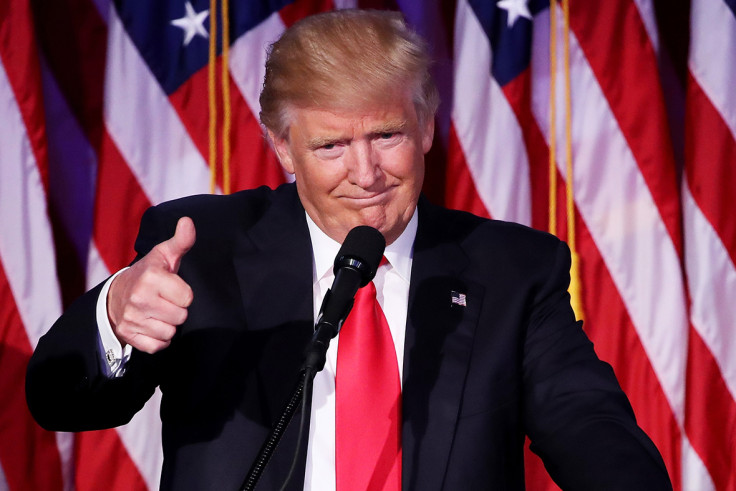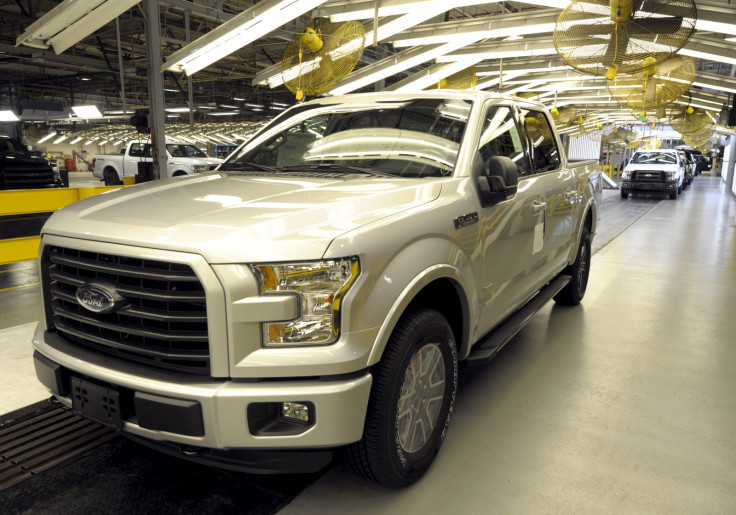Trump's views on climate change being a hoax threaten to stunt electric car market
Global warming dismissal and dislike of emissions targets could lead to falling electric car sales and development.

President-elect Donald Trump's views on climate change, paired with a desire to appease the US automotive industry and a market hungry for SUVs and pickups, threatens to stunt the growth of the electric vehicle (EV) market.
Trump and his administration plan to increase jobs in the US, partly by encouraging car makers to build their vehicles at home instead of in a foreign country with lower wages. But in order to offset their higher wage bill, manufacturers will look to boost profits by focusing on popular and high-margin vehicles like pickup trucks and sports utility vehicles, not high-cost EVs.
Both SUVs and trucks generally emit more emissions and return fewer miles per gallon than smaller vehicles, but electric or hybrid versions are non-existent below the $80,000+ (£65,000) Tesla Model X. The current low price of gasoline also plays into the hands of both SUV buyers and manufacturers, but these are short-term goals which ignore a wider problem.
Trump has his eyes on fuel economy targets set by the Obama administration and which have forced car makers into adopting hybrid and electric technologies to comply. The current goal, set in 2012, is for almost all auto makers to sell vehicles in the US which achieve an average of 54.5 miles per gallon by 2025. Current estimates claim an average of 50.8mpg is more likely.
This goal, along with many other federal regulations, will soon receive Trump's attention. Josh Mashburn, a senior policy adviser to the next president, told the Wall Street Journal: "The Trump administration will complete a comprehensive review of all federal regulations. This includes a review of the fuel economy and emissions standards to make sure they are not harming consumers or American workers."
Mashburn added: "It is important to remember that this particular programme was first put in place as a way to reduce our nation's dependence on foreign oil, not for purposes of global warming regulation." The adviser added that once in office Trump will focus on bringing car manufacturing jobs back to the US.
Add this to Trump's widely-reported belief that global warming is a hoax created by the Chinese "to make US manufacturing non-competitive", and the current surge in EV development is put under threat.
The concept of global warming was created by and for the Chinese in order to make U.S. manufacturing non-competitive.
— Donald J. Trump (@realDonaldTrump) November 6, 2012
Trump tweeted in December 2013: "We should be focused on clean and beautiful air – not expensive and business closing global warming – a total hoax!". He followed this up days later with: "This very expensive global warming bull**** has got to stop. Our planet is freezing, record low temps, and our [global warming] scientists are stuck in ice."
Trump later dismissed these messages as a joke, before immediately reinstating his beliefs. During the Democratic debate on 18 January 2016, Trump said: "I think the climate change is just a very, very expensive form of tax. A lot of people are making a lot of money. I know much about climate change."
We should be focused on clean and beautiful air-not expensive and business closing GLOBAL WARMING-a total hoax!
— Donald J. Trump (@realDonaldTrump) December 28, 2013
He went on: "And I often joke that his is done for the benefit of China. Obviously, I joke. But this is done for the benefit of China, because China does not do anything to help climate change. They burn everything you could burn; they couldn't care less."
Although seen by some as a stranglehold on car makers, the tough emissions targets imposed by the Obama administration – and fuel economy standards dating back 40 years – have encouraged firms to adapt. Tesla has seen major success in its electric-only approach, while Audi, Porsche, Volkswagen and many others are all preparing to sell EVs of their own before the end of the decade.
But with charging still relatively slow compared to refueling a petrol or diesel car, and the lack of charging ports compared to petrol stations, car makers have been hesitant to go all-in on electric. Multi-year lead times in the design and production of a new car also hinder their ability to make the transition away from internal combustion a quick and painless one.

If Trump lowers emissions targets then car makers could well pause their expensive and time-consuming electric vehicle development to instead focus on selling whatever makes the most money; namely, trucks and SUVs. And it is worth remembering the three best-selling vehicles in the US are all petrol-powered pickup trucks. In March 2016 the most popular, the Ford F Series, out-sold the most popular car, the Toyota Camry, by two-to-one.
Changes to the current road map could come as soon as 2017, when US environmental regulators are to propose whether economy targets for car makers should be changed, either to restrict emissions further, or make them more relaxed.
The latter could see buyers shift away from Tesla and back towards its cheaper, petrol-powered rivals. The $35,000 Model 3 is the answer Tesla needs to fight back in the mid-market, but that car won't be on sale until the end of 2017 at the earliest.
Whether consumers value Elon Musk's vision and Tesla's green credentials enough in a Trump-led world of cheap gas and less economy-restricted SUVs – especially now free Tesla charging has been curtailed – remains to be seen.
© Copyright IBTimes 2025. All rights reserved.





















